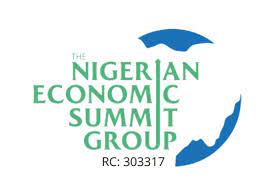The Nigerian Economic Summit Group(NESG) has identified government’s policy inconsistency as one of the factors responsible for non-achievement of globally competitive private sector led economy in Nigeria.
Mr. Asue Ighodalo, chairman of NESG,who disclosed this in Abuja at a private sector dialogue with the conference of speakers of state legislatures,lamented that over the years
policy inconsistencies have marred the aspirations to achieve a globally competitive private sector led economy.
He emphasized the need for effective legislative framework for improving the business environment and achieving its global competitiveness at both states and local government areas.
He said:”As part of the recommendations at the 21st Nigerian Economic Summit (NES #21), it was agreed that the private sector should collaborate with the legislature to carefully identify the relevant laws that impact business environment and the creation of an enabling environment, and then take action to amend, enact, or repeal same, encourage and support the legislature to improve these laws by amendment, or by enacting new laws where legislative gaps exist or repeal any of the Laws that are outdated or inimical to business, job creation and economic growth.”
According to him, the challenges confronting Nigeria require a multi-dimensional approach to resolving them, adding that to overcome the nation’s economic challenges, the legislature is one of the institutions that must be engaged by and collaborate with the private sector to ensure that the appropriate solutions required are underpinned by a supportive legislative framework.
He further advocated the need for states and local government areas in Nigeria to be in the fore-front of championing economic growth and development through creation of favourable business climate, enabling laws, provision of infrastructural facilities and attraction of foreign direct investments into the States.
“In support of this, NES #26 participants called for, amongst other proposals, an urgent review of the Nigerian Constitution to remove impediments to subnational competitiveness, with emphasis on identifying and developing subnational factor endowments; marketing their competitive advantages of each subnational to attract foreign investments; encouraging ongoing attempts by Nigerians in Diaspora to invest in their local communities; implementing industrial policies to deliver quick wins in generating jobs; promoting exports and thereby enhancing their revenues; working with the private sector to create economic corridors along existing national transport corridors, and enabling creative mechanisms for increasing investments in infrastructure to drive the growth of rural and subnational economies in critical sectors.
“At the epicentre of all of the required reform is the nexus symbiosis between the private sector and the sub-national governments.Over the years, most of the efforts towards Nigeria’s development had been driven mainly by the Federal Government and it had become clear that this was insufficient.
“In order to put Nigeria on the trajectory to meaningful and strong economic growth, it is imperative to empower the subnational governments with the necessary statutory tools which will eliminate the barriers which inhibit the inclusive economic growth unlocking of their potentials. This has necessitated the strong need for a dialogue between the sub-national governments and the private sector to act on a legislative frameworks that can deliver sustainable quick economic recovery, as well as fast-paced growth and effective development. After all, every business in Nigeria is a tenant of a state.
“Therefore, we seek to achieve this, the NESG undertakes to work with you to identify the hindrances and proffer solutions which will enable our sub nationals legislators to create the appropriate legislative framework required and thereby achieve sustainable and resilient economies,” he explained.
Ighodalo said the NESG’s macroeconomic outlook identified four priorities that are essential in driving economic recovery and delivering a high, sustainable and inclusive economic growth for Nigeria over the next few years, adding that these priorities include macroeconomic stability, policy and regulatory consistency, sectoral reforms and human capital development.
Also speaking,the Chief Executive Officer, Nigerian Economic Summit Group, Laoye Jaiyeola, urged state governments to improve on their investments and create enabling environment for businesses to thrive as well as attract investors in the country.
He noted that the root of Nigeria’s economic problems was lack of investment and an enabling environment for businesses to thrive.
He said, “The solution is that what we need is to bring investment. There are private sector people in Nigeria today who are afraid to invest their money in the country. Our foreigners are not bringing their money; Nigerians are taking their monies out.So, how do we give that confidence that will make the private sector keep their money in the country?”
He said the state of the economy is not where it should be as the country has recorded three recessions in the last 10 years.
According to him,the economy was still on the path of recovery and as such all hands must be on the deck to facilitate its growth.

